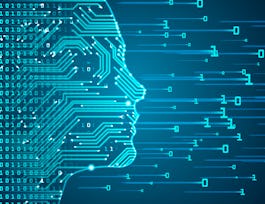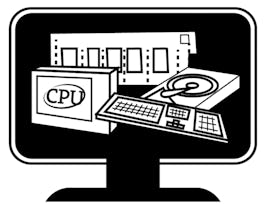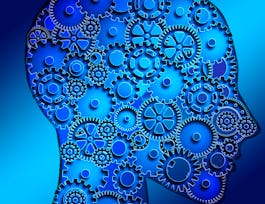This course will provide you a foundational understanding of machine learning models (logistic regression, multilayer perceptrons, convolutional neural networks, natural language processing, etc.) as well as demonstrate how these models can solve complex problems in a variety of industries, from medical diagnostics to image recognition to text prediction. In addition, we have designed practice exercises that will give you hands-on experience implementing these data science models on data sets. These practice exercises will teach you how to implement machine learning algorithms with PyTorch, open source libraries used by leading tech companies in the machine learning field (e.g., Google, NVIDIA, CocaCola, eBay, Snapchat, Uber and many more).


Introduction to Machine Learning
Taught in English
Some content may not be translated
204,556 already enrolled
(3,446 reviews)
Skills you'll gain
Details to know

Add to your LinkedIn profile
24 quizzes
See how employees at top companies are mastering in-demand skills


Earn a career certificate
Add this credential to your LinkedIn profile, resume, or CV
Share it on social media and in your performance review

There are 6 modules in this course
The focus of this module is to introduce the concepts of machine learning with as little mathematics as possible. We will introduce basic concepts in machine learning, including logistic regression, a simple but widely employed machine learning (ML) method. Also covered is multilayered perceptron (MLP), a fundamental neural network. The concept of deep learning is discussed, and also related to simpler models.
What's included
23 videos2 readings10 quizzes3 ungraded labs
In this module we will be discussing the mathematical basis of learning deep networks. We’ll first work through how we define the issue of learning deep networks as a minimization problem of a mathematical function. After defining our mathematical goal, we will introduce validation methods to estimate real-world performance of the learned deep networks. We will then discuss how gradient descent, a classical technique in optimization, can be used to achieve this mathematical goal. Finally, we will discuss both why and how stochastic gradient descent is used in practice to learn deep networks.
What's included
6 videos3 quizzes2 ungraded labs
This week will cover model training, as well as transfer learning and fine-tuning. In addition to learning the fundamentals of a CNN and how it is applied, careful discussion is provided on the intuition of the CNN, with the goal of providing a conceptual understanding.
What's included
8 videos4 quizzes2 ungraded labs
This week will cover the application of neural networks to natural language processing (NLP), from simple neural models to the more complex. The fundamental concept of word embeddings is discussed, as well as how such methods are employed within model learning and usage for several NLP applications. A wide range of neural NLP models are also discussed, including recurrent neural networks, and specifically long short-term memory (LSTM) models.
What's included
13 videos4 quizzes2 ungraded labs
This week we'll cover an Introduction to the Transformer Network, a deep machine learning model designed to be more flexible and robust than Recurrent Neural Network (RNN). We'll start by reviewing several machine learning building blocks of a Transformer Network: the Inner products of word vectors, attention mechanisms, and sequence-to-sequence encoders and decoders. Then, we'll put all of these components together to explore the complete Transformer Network.
What's included
12 videos
This week will cover Reinforcement Learning, a fundamental concept in machine learning that is concerned with taking suitable actions to maximize rewards in a particular situation. After learning the initial steps of Reinforcement Learning, we'll move to Q Learning, as well as Deep Q Learning. We'll discuss the difference between the concepts of Exploration and Exploitation and why they are important.
What's included
10 videos3 quizzes2 ungraded labs
Instructors



Offered by
Recommended if you're interested in Machine Learning

University of Colorado Boulder

University of London

University of Washington

Coursera Project Network
Why people choose Coursera for their career




Learner reviews
Showing 3 of 3446
3,446 reviews
- 5 stars
74.86%
- 4 stars
20.37%
- 3 stars
2.90%
- 2 stars
0.63%
- 1 star
1.21%
New to Machine Learning? Start here.

Open new doors with Coursera Plus
Unlimited access to 7,000+ world-class courses, hands-on projects, and job-ready certificate programs - all included in your subscription
Advance your career with an online degree
Earn a degree from world-class universities - 100% online
Join over 3,400 global companies that choose Coursera for Business
Upskill your employees to excel in the digital economy
Frequently asked questions
Access to lectures and assignments depends on your type of enrollment. If you take a course in audit mode, you will be able to see most course materials for free. To access graded assignments and to earn a Certificate, you will need to purchase the Certificate experience, during or after your audit. If you don't see the audit option:
The course may not offer an audit option. You can try a Free Trial instead, or apply for Financial Aid.
The course may offer 'Full Course, No Certificate' instead. This option lets you see all course materials, submit required assessments, and get a final grade. This also means that you will not be able to purchase a Certificate experience.
When you purchase a Certificate you get access to all course materials, including graded assignments. Upon completing the course, your electronic Certificate will be added to your Accomplishments page - from there, you can print your Certificate or add it to your LinkedIn profile. If you only want to read and view the course content, you can audit the course for free.
You will be eligible for a full refund until two weeks after your payment date, or (for courses that have just launched) until two weeks after the first session of the course begins, whichever is later. You cannot receive a refund once you’ve earned a Course Certificate, even if you complete the course within the two-week refund period. See our full refund policy.



